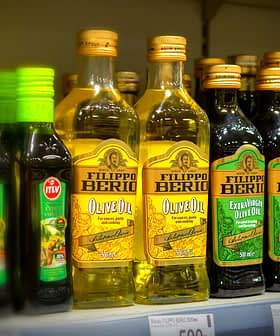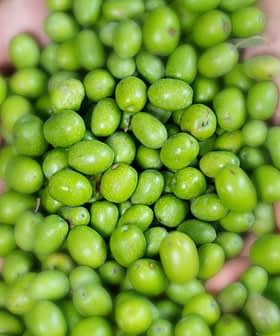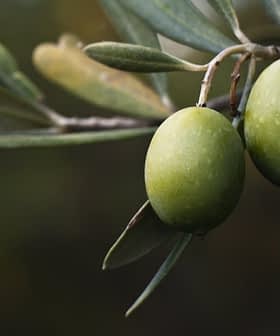Greece's Olive Oil Yield Exceeds Projections
Greek olive oil producers have enjoyed successful season with increased yields and high-quality oils, but struggle with low prices and post-wildfire challenges.
Greece’s olive oil yield for the season is expected to reach 250,000 tons, a significant increase from the previous year. Despite some regions producing less than expected due to weather conditions, overall olive oil production in Greece has been robust, leading to frustration among producers over falling prices.
While mills across Greece are processing the last olives of the season, the initial projections for a satisfactory olive oil yield in the country have been confirmed.
Official data from the European Commission’s observatory for olive oil and table olives forecasted that Greece would produce 229,500 tons of olive oil at the end of February. In contrast, this season’s production is expected to reach the initially estimated 250,000 tons.
Greece emerged as the second-largest olive oil producer in the E.U. in the 2024/25 crop year after Spain. When all the Mediterranean producing countries are considered, Greece is expected to rank fourth, behind Turkey and Tunisia.
See Also:2024 Harvest UpdatesThe expected national yield of 250,000 tons of olive oil also represents a twofold increase from last year’s historically low harvest of around 120,000 tons.
The prolonged drought that dominated southern Greece last fall, which spread anxiety among producers about reduced yields, was followed by abundant rains that transformed the country’s olive oil industry.
“The first olive oils of the season were not of the quality we were looking for because of the drought,” olive miller Christos Valavanis from Mani in southern Peloponnese told Olive Oil Times. “However, the November rains in our area were decisive for the olive trees to rebound and deliver oils of fine quality.”
Producers in almost all of southern Greece have enjoyed robust yields this season.
“We are very pleased this year despite the early estimates of a reduced production due to the long dry summer,” said Kostas Panagiotopoulos of the Monopati producers’ association in Ilia in western Peloponnese.
“Compared to last season, we had a 30 percent increase in quantity,” he added. “Of course, if it weren’t for the high temperatures of the summer, the quantity would have been even higher.”
On the island of Evia, which runs parallel with central Greece to the east, producer and miller Michalis Kounouvelis from Kehries said the season was rewarding for local producers compared to the previous harvest.
“We have got twice as much as last year’s olive oil from our Megaritiki olive trees,” Kounouvelis said. “In advance, the quality is excellent, with the acidity of the oils in our area only reaching 0.2 to 0.3 percent.”
However, the region’s olive groves still bear the scars of the 2021 fires, with state aid for impacted farmers lagging.
“The 2021 wildfires took a heavy toll in our area,” Kounouvelis said. “A lot of olive trees were burned, and producers with damaged or destroyed trees have so far been compensated with only €25 per tree. The amount is not enough to cover the damage.”
After the 2021 wildfires, full-time olive growers in Greece expected to receive approximately €100 for each olive tree damaged by fire.
Despite the increased olive oil yields across Greece compared to last year, farmers and millers in some parts of the country produced less than initially expected.
Across the Aegean Sea on the island of Lesbos, a traditional Greek olive oil-producing region, the expectations for a crop close to the island’s top production capacity were dashed at milling time.
“The trees were loaded with olives, but the lack of rains caused the olives to yield less oil than expected,” local producer and mill owner Michalis Tzortzis said.
“The overall olive oil production on the island will likely stay below 10,000 tons compared to around 18,000 tons in abundant years,” he added. “Nevertheless, it is still a big improvement from the previous disastrous season.”
Tzortzis finally said that a slim production of olive oil should be expected in the 2025/26 crop year on Lesbos. He blamed this on the late blossoming of the trees this spring and the biennial production cycle of the island’s indigenous olive varieties, the Adramytini and the Kolovi.
Crete is another traditional producing territory where olive oil production has recovered this season. In the western part of the island, the region of Chania has lived up to its reputation as a place where high-quality olive oil is produced.
“We expect the region to give around 23,000 tons compared to only 16,000 tons last year,” Ioannis Mamidakis from the local department of agriculture told Olive Oil Times. “The quality of the olive oils is also exceptional, with 92 percent of the season’s fresh oils classified as extra virgin,” he added.
This year, olive oil prices tell a different story: producers across the country are frustrated by the existing prices at origin, which have more than halved from last year’s €10 per kilogram of extra virgin olive oil.
“The new reality is around €4.30 for a kilogram of low-acidity extra virgin,” said Yiorgos Kokkinos, the head of the Nileas association from Hora in southern Peloponnese.
“The initial projection of the IOC for a global production of 3.4 million tons has been confirmed,” Kokkinos also said. “At the same time, the market is not interested in buying [olive oil]. Some expect prices to rise, but I do not share these expectations. I will say again that prices will fall further if we have another year with such [high] production.”
Some farmers’ associations in the country are resorting to measures such as setting a minimum price in auctions to avoid selling below a fixed price threshold.
In Messenia, the agricultural association of Kalamata’s auction for 25 tons of freshly produced extra virgin olive oil ended without a deal. The association argued that the potential buyers “did not respond” to the asking price of €5.10 per kilogram.
However, in neighboring Laconia, the agricultural association of Molaon-Pakion sold 80 tons of extra virgin olive oil for a lower price.
“We agreed to sell 80 tons for €4.75 per kilogram,” the association’s manager, Panagiotis Danakas, said. “The producers need to sell to cover their expenses. But the Greek state should introduce measures at a E.U. level for imports of olive oil from third countries.”
“Those producers who can afford to wait do not sell,” Mamidakis from Chania said. “This practice, however, entails the risk of buyers turning to other markets to purchase olive oil.”
Share this article







